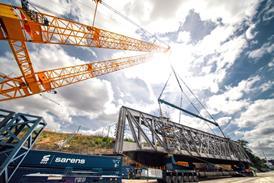March 21 - According to Allianz Global Corporate & Specialty's (AGCS) Safety and Shipping Review 2016, shipping losses continued their long-term downward trend in 2015, with 85 total losses reported worldwide last year.
Losses have declined by 45 percent since 2006, driven by an increasingly robust safety environment and self-regulation. However, said AGCS, disparities by region and vessel type remain.
Overall there were 2,687 reported incidents globally during 2015. Cargo ship losses were up for the first time in three years.
The issue of car carrier stability remained in the spotlight during 2015, noted AGCS, which was marred by the grounding of the PCTC Höegh Osaka in January. It developed a list shortly after departing Southampton, UK, for Bremerhaven in Germany.
According to a report into the incident by the Marine Accident Investigation Branch (MAIB), the Höegh Osaka's actual cargo weight and stowage were significantly different to the final cargo tally supplied to the ship, stated AGCS.
While the long-term downward trend in shipping losses is encouraging, the continuing weak economic and market conditions, depressed commodity prices and an excess of ships are pressurising costs and raising safety concerns, said AGCS.
"AGCS has seen an increase in frequency losses over the past year which can likely be attributed to some extent to this environment," suggested Duncan Southcott, global head of claims - marine at AGCS.
Captain Rahul Khanna, global head of marine risk consulting at AGCS, added: "The economic downturn - and its impact on the shipping sector - is likely to have a negative impact on safety. Many sectors, such as general cargo, bulk and offshore, are already challenged and any drop in safety standards will be a serious case for concern."
It is critical that economic pressures do not allow a 'put it off until later' safety mentality to develop, AGCS experts warned, noting that some shipowners are already stretching maintenance to longest possible intervals while others are laying-up vessels.
As well as impacting investment in vessel maintenance, cost pressures can impair crewing conditions, passenger ship safety and salvage and rescue, said AGCS, adding that training also remains below par in some areas.
The AGCS report also considers the potential risks involved with ever-larger container ships and their increased cargo carrying capacity.
Exceptional weather events and their frequency are also discussed. More extreme weather conditions are expected this year, which AGCS says brings additional risks and disruption to supply chains.
"The fact that superstorms are causing ships to sink is concerning," said Sven Gerhard, global product leader, hull and marine liabilities at AGCS. "We are seeing more and heavier natural catastrophe events. Weather routing will continue to be a critical component to the safe navigation of vessels."
The shipping industry's reliance on interconnected technology also poses risks, suggested the report. Cyber risk exposure is growing beyond data loss, added AGCS.
"Pirates are already abusing holes in cyber security to target the theft of specific cargoes," said Captain Andrew Kinsey, senior marine risk consultant at AGCS. "The cyber impact cannot be overstated."
The report also identified the potential safety implications involved with the use of different fuels in order to comply with lower emissions regulations. It also questions the safety and best practice of Arctic shipping.
See the full report here: http://www.agcs.allianz.com/insights/white-papers-and-case-studies/safety-and-shipping-review-2016/
www.allianz.com
















